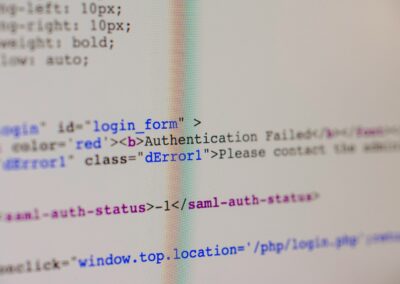Ensuring Secure and Ethical Use of Digital Identities
The Importance of Privacy in Digital Identity Management
Addressing the privacy challenges associated with the collection and use of digital identities is crucial for organizations operating in today’s digital age. As businesses in Saudi Arabia, the UAE, and globally increasingly rely on digital identities for authentication, transactions, and personalized services, the protection of these identities becomes paramount. Digital identities, which often include sensitive personal information, must be managed with the highest standards of security to prevent data breaches and maintain user trust.
Digital identity management involves the systematic collection, storage, and use of personal data to verify and authenticate individuals in various digital interactions. In cities such as Riyadh and Dubai, where digital transformation is accelerating, the adoption of digital identity solutions is on the rise. However, this increase in digital identity usage also brings significant privacy risks, including unauthorized access, data misuse, and potential cyberattacks.
Understanding the importance of privacy in digital identity management is the first step towards implementing effective strategies. Organizations must recognize that protecting digital identities is not only a regulatory requirement but also a critical component of maintaining customer trust and loyalty. By addressing privacy challenges proactively, businesses can ensure the secure and ethical use of digital identities while fostering a culture of data protection and privacy awareness.
Implementing Robust Security Measures
To address the privacy challenges associated with digital identities, organizations must implement robust security measures. One effective approach is to employ advanced encryption techniques to protect personal data both in transit and at rest. Encryption ensures that even if data is intercepted, it remains unreadable and secure. In regions like Saudi Arabia and the UAE, where digital security is a top priority, adopting strong encryption protocols is essential for safeguarding digital identities.
Another crucial measure is the implementation of multi-factor authentication (MFA). MFA requires users to provide multiple forms of verification before accessing sensitive information, significantly reducing the risk of unauthorized access. This can include something the user knows (a password), something the user has (a mobile device), and something the user is (biometric data). In tech-savvy cities like Riyadh and Dubai, promoting the use of MFA can enhance digital identity security and protect against potential breaches.
Regular security audits and risk assessments are also vital for identifying and mitigating vulnerabilities in digital identity management systems. Organizations should conduct thorough evaluations of their data protection measures and address any weaknesses promptly. By staying vigilant and proactive, businesses can ensure that their digital identity management practices remain robust and resilient against evolving cyber threats. In dynamic markets like Saudi Arabia and the UAE, where regulatory environments are continuously evolving, staying compliant with local and international data protection standards is crucial for maintaining data privacy and security.
Fostering a Culture of Privacy and Transparency
Beyond technological solutions, fostering a culture of privacy and transparency within the organization is key to addressing privacy challenges in digital identity management. This involves educating employees and stakeholders about the importance of data privacy and their role in protecting digital identities. Comprehensive training programs can equip staff with the knowledge and skills needed to handle personal data responsibly and securely.
Organizations should also prioritize transparency in their data collection and usage practices. Clear and accessible privacy policies help users understand how their data is being used and what measures are in place to protect it. In regions like Dubai and Riyadh, where consumer trust is integral to business success, maintaining transparency in data practices can enhance customer confidence and loyalty.
Engaging with customers and stakeholders through regular communication about data privacy initiatives can further build trust. Providing updates on security enhancements, policy changes, and responses to potential threats demonstrates a commitment to protecting user data. In the rapidly developing markets of Saudi Arabia and the UAE, where digital interactions are becoming increasingly common, transparent communication is essential for maintaining strong relationships with customers and partners.
Conclusion
Addressing the privacy challenges associated with the collection and use of digital identities is essential for organizations aiming to protect sensitive information and maintain user trust. By implementing robust security measures, such as encryption and multi-factor authentication, conducting regular audits, and fostering a culture of privacy and transparency, businesses can safeguard digital identities effectively. In regions like Saudi Arabia and the UAE, where digital transformation is advancing rapidly, prioritizing data privacy is crucial for achieving long-term success and fostering trust in digital interactions. As the landscape of digital identity management continues to evolve, staying proactive and committed to privacy protection will be key to navigating emerging challenges and ensuring secure and ethical use of digital identities.
—
#DigitalIdentityPrivacy #DataPrivacyChallenges #Cybersecurity #DataProtection #SaudiArabia #UAE #Riyadh #Dubai #DigitalSecurity #DataManagement























